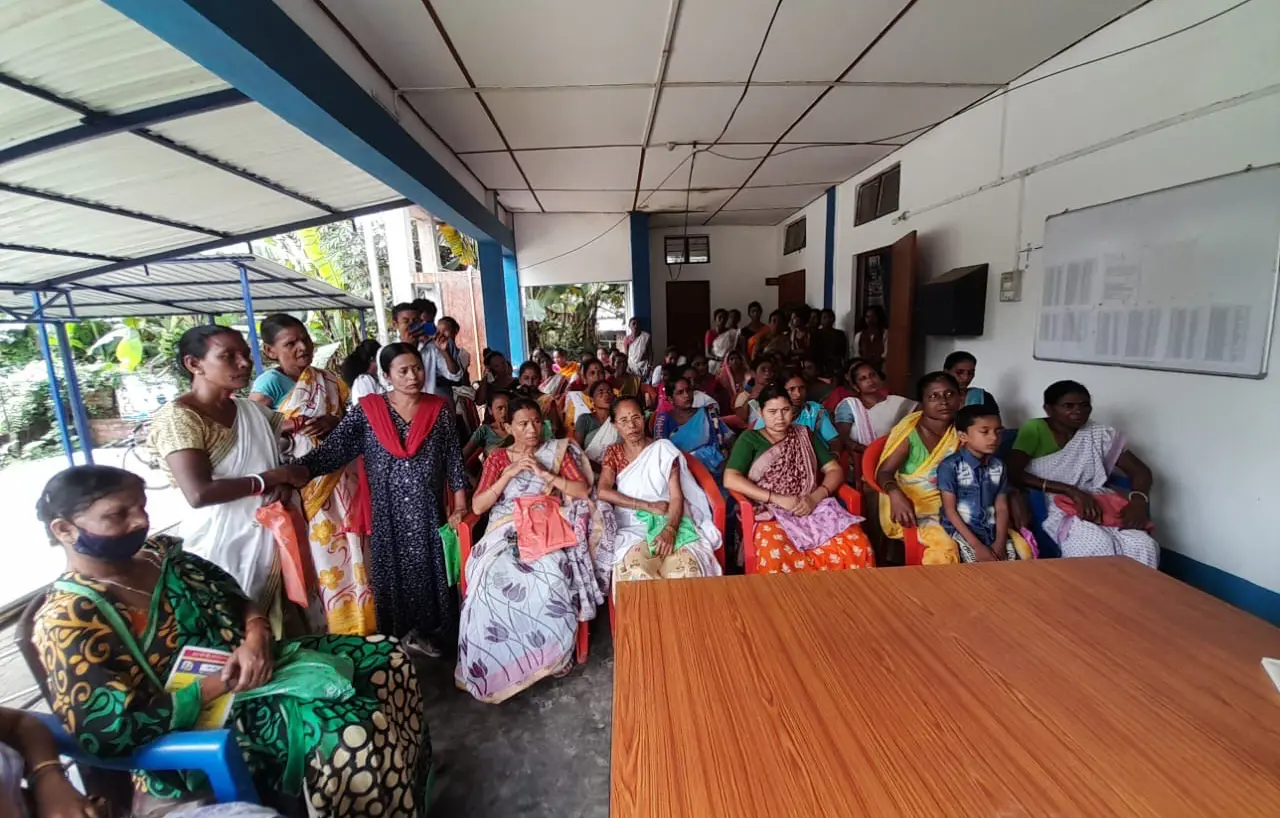Ten questions with Rwitwika Bhattacharya
Laudes Foundation works with leading practitioners across industries to champion the acceleration to a green, fair and inclusive economy. We asked Rwitwika Bhattacharya from Swaniti Initiative what her work in the labour rights field means to her, and how it contributes to the transition, in ten questions.
When did you know you wanted to work in this field?
Public service was core to how I was raised. My parents, my brother and I had service woven in to our everyday lives, and these sentiments were reinforced throughout my childhood and well in to my teens.
What is the best piece of advice you have ever received?
Dog-get-ness. Be like the dog that really needs to get the bone. There are so many moments when you want to give up but my partner always reminds me of the importance of remaining dogged.
Education or practical experience - what do you value more?
I used to value practical experience because I related it to the individual’s ability to respond to crises and opportunities. But practical experience only scratches the surface of what education can offer. Education is knowledge, and unearthing knowledge can take you to the nuances and depth needed to solve the bigger, harder problems.
What was the last book you read that changed your thinking?
The power of Habits by Charles Duhigg.
What do you find most fulfilling in your work?
The thrill of realizing how much more there is to do!
What is the biggest hurdle you have faced in the past and how did you overcome it?
Managing ‘everything else’ at the start while working on designing and executing programs. Swaniti has been about coming out of my comfort zone and working across all sectors, especially ones I had little or no idea about, from hiring to setting up finance and legal structures. But I have often been told that these exercises help “build character”.

Focussed group discussion with female memebrs of SHG's to evaluate alteenate livlihood in mining effected areas.
At Laudes we know that we need to work collectively to change the systems that affect all of us. What is one way you have achieved impact or moved the needle in collaboration with another organisation?
Swaniti’s strength lies in recognizing that to create longer term systems change, we need to collaborate to leverage collective strengths of an ecosystem of players, an ethos embedded in each of our program models. An example is our work in the Eastern Indian state of Jharkhand to create an enabling environment for a just energy transition. We started by embedding a team to work with the local government to identify possible sources of funding to fast track an energy transition process. Subsequently, we identified a consortium of 12 partners who could use those resources to enable a smooth transition process.
How has your vision changed since you first started / joined the organisation?
The Swaniti journey has been a humbling process, where over time, I have come to recognise the importance of other players in the larger ecosystem. Swaniti’s theory of change was solely focused on how improving fundamental government systems can have transformative impact on communities. While some of that remains true, over the last twelve years, I have come to realise that government is not the only major player. Our vision now recognises that we cannot look at government as an entity, but instead as an enabler that has strong reactions when working with other actors in private sector and civil society effectively.
What is the one thing your organisation needs to be achieve its mission / be successful?
People. Whether it is the commitment of people within the organization or a collaborative approach of our partners, we need the support of passionate people who are willing to work on tough challenges for long periods of time with equal dedication.
If you had to choose one challenge you [and your team] need to tackle to accelerate this transition, what would that be?
Energy transition has a tremendous urgency which is not always apparent to most of us. We need an “all hands on deck” approach to resolve such a large challenge, currently happening only in clusters. My colleagues and I are working to ensure that this approach of all stakeholders working together and leveraging key strengths is highlighted and put in place.
About Rwitwika Bhattacharya
Rwitwika Bhattacharya is the CEO for Swaniti Initiative, a social enterprise that works as an ecosystem builder on sustainability to address climate concerns. As CEO, her role focuses on developing long-term growth strategies and formulating key partnerships with governments and CSO partners.
Prior to Swaniti, Bhattacharya worked at the World Bank as an associate on labor market issues. Previously, she has worked for firms such as the United Nations Population Fund and the Federation of Indian Chambers of Commerce and Industry. She holds a master’s degree in public policy from Harvard Kennedy School and a bachelor’s degree in economics and political Science from Wake Forest University. She has published three books, Frontiers in Development Policy (World Bank), Labor Market Primer (World Bank), and Making of a Politician (Harper Collins).
Bhattacharya is Forbes India's 30 under 30, Fortune's 40 under 40, a special invitee to the White House for her work on social enterprise, a young global leader at the World Economic Forum and a Schmidt Futures Fellow amongst other accolades. She is currently a non-resident Fellow at the Center for Strategic and International Studies.
-

By Rwitwika Bhattacharya
CEO, Swaniti Initiative